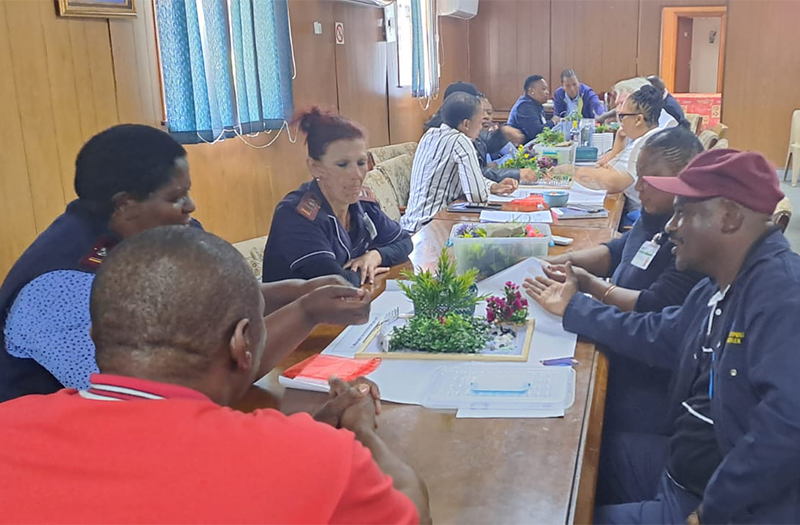When healthcare staff at the Klerksdorp/Tshepong Hospital complex voiced a heartfelt need for debriefing and support, Dr Khumo Shopo, deputy director of the School of Nursing at the North-West University (NWU) and hospital board member, listened.
Her response set in motion an inspiring initiative: the Presence workshops, an initiative of the Presence team of the School of Nursing and the NuMIQ research focus area, designed to nurture well-being and relational caring among hospital staff, and now making waves across North West.
The spark for these workshops came during a routine walkabout, when staff shared their emotional burdens and desire for a safe space to reflect. Dr Shopo invited the Presence team to create a workshop tailored to these needs. The result was a session built on the DREAM guideline, a research-based framework developed by interviewing nurses in rural North West about how they practise “presence,” or relational caring. The DREAM acronym stands for dedication, respect, environment, attitude and motivation, encapsulating the core values that underpin compassionate healthcare.
Each workshop begins with an engaging introduction to the concept of presence and its transformative power in healthcare. Participants then embark on reflective exercises guided by the DREAM principles, exploring how these values shape their daily interactions with patients and colleagues. The workshops are not just for clinical staff; everyone is welcome – from management and medical professionals to cleaners, porters and security staff. This inclusive approach fosters a sense of unity and shared purpose across the hospital community.
A highlight of the workshops is the “garden exercise,” where staff use symbolic items, tiny trees, flowers and stones to build models representing their workplace experiences. Sharing these creations in groups, participants find space to voice challenges and celebrate sources of hope, often discovering that teamwork and a sense of purpose are their strongest roots. Another popular activity is the World Café, which sparks open dialogue and collective problem-solving. In the second half of the workshop, exercises like the empowerment dynamic, team pillars, and the sandwich method for conflict resolution provide practical tools for personal and professional growth.
The impact of the Presence workshops has been profound. Unit managers report noticeable improvements in team morale and atmosphere. Staff members remind each other of the lessons of the workshop, holding one another accountable for practising presence – not only with patients, but with each other. Participants have shared that the workshop exceeded their expectations, equipping them with skills in emotional intelligence, communication and empathy. Many have experienced a shift from a “victim” to a “creator” mindset and have gained confidence in resolving conflict and building stronger relationships.
One medical doctor shared how the workshop helped her dare to dream about her future, giving her renewed hope and clarity for her career. Another participant reflected on the importance of active listening, committing to more mindful communication with colleagues. These stories are testament to the power of the workshop to spark both personal and professional transformation.
The Presence workshops took centre stage at the 2024 Community Engagement Showcase and Dr Kenneth Kaunda Research Day. With a vibrant stall featuring a video, pamphlets and banners, and the enthusiastic Presence team in branded attire, the workshops drew interest and sparked meaningful conversations about the importance of relational care in healthcare.

The Presence workshops are more than just training, they are a movement towards a more compassionate, connected and resilient healthcare community in North West.
